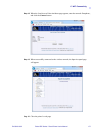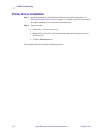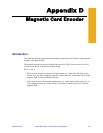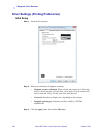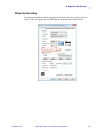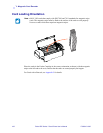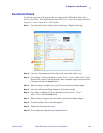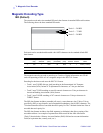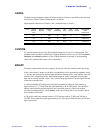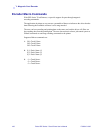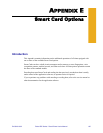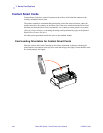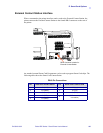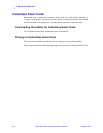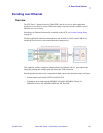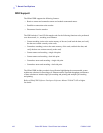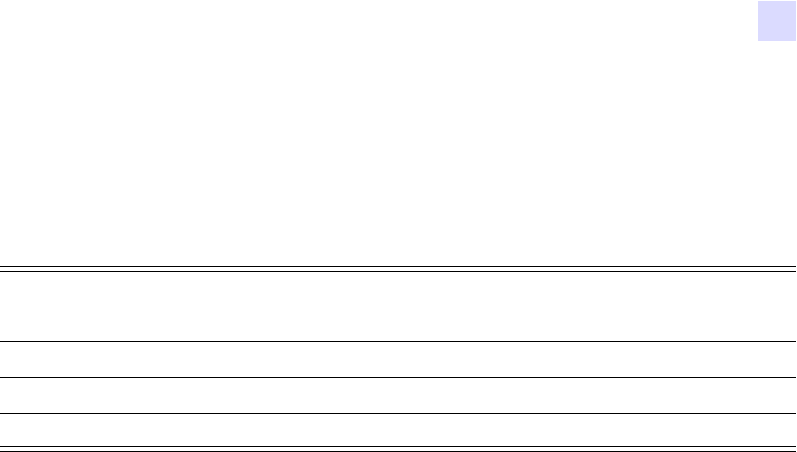
D: Magnetic Card Encoder
P1036101-002 Zebra ZXP Series 7 Card Printer User’s Manual 185
AAMVA
The data stored on magnetic stripes on American driver's licenses is specified by the American
Association of Motor Vehicle Administrators (AAMVA).
Alpha-numeric characters on Tracks 1 and 3, numerals only on Track 2.
CUSTOM
If a custom format is desired, the ISO standard format may be used as a starting point. The
standard format can then be modified by assigning different values to any or all of the density,
character, and sentinel attributes. (If any of these attributes is missing, its corresponding
value in the standard ISO format will be substituted.)
BINARY
The binary option allows the user to specify directly the value for each bit on the mag stripe:.
In this “direct binary” mode, it is the host’s responsibility to fully populate the magnetic stripe;
i.e., the hex data provided by the host must include the leading zeroes, start sentinel, data, end
sentinel, LRC, and trailing zeroes. Note that the magnetic stripe is encoded from the right-
hand end as viewed from the “stripe” side, with the stripe uppermost. The least significant bit
of the data is encoded first.
A sufficient number of leading zeroes should be prepended to offset the start sentinel by
approximately 0.3" (7.5 mm) from the right-hand end, as in the ISO format. Care should be
taken to ensure that the payload data does not exceed the capacity of the tracks at their
specified recording densities. (In the binary mode, out-of-range data is not recorded, and no
error condition will result.)
A CR-80 size card has a nominal capacity of 252 bits per track at 75 BPI, and 708 bits at
210 BPI. These capacities equate approximately to 31 hex bytes (248 binary bits) and 88 hex
bytes respectively.
Track Density
(bits per
inch)
Bits per
character
Character
parity
Length
(characters)
LRC
parity
Start
sentinel
End
sentinel
Start sentinel
offset
inches (mm)
1 210 7 Odd 79 Even % ? 0.293" (7.4)
275 5 Odd 37Even;?0.293" (7.4)
3 210 7 Odd 79 Even % ? 0.293" (7.4)



